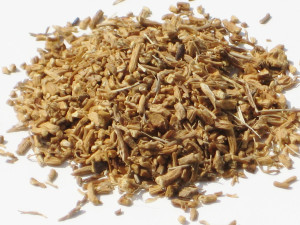Valerian root (valeriana officinalis) is derived from a plant native to Europe and Asia.
Contents
Uses
- The root of this plant has been used for thousands of years as a remedy for various ailments including sleep problems, digestive problems, disorders of the nervous system, headaches, and arthritis. It is believed that valerian root has an impact on the availability of the neurotransmitter GABA in the brain.
- Anxiety disorders such as social anxiety disorder (SAD)
-
Benefits
- Valerian has been used in alternative medicine as a possibly effective aid in treating sleep problems (insomnia).
- Other uses not proven with research have included treating anxiety, stress, depression, attention deficit disorder, chronic fatigue syndrome, tremors, epilepsy, menopause symptoms, and other conditions.
It is not certain whether valerian is effective in treating any medical condition. Medicinal use of this product has not been approved by the FDA. Valerian should not be used in place of medication prescribed for you by your doctor.
- Valerian is often sold as an herbal supplement. There are no regulated manufacturing standards in place for many herbal compounds and some marketed supplements have been found to be contaminated with toxic metals or other drugs. Herbal/health supplements should be purchased from a reliable source to minimize the risk of contamination.
Cautions
- Valerian root should not be taken if you are pregnant or nursing, if you suffer from liver disease, or if you are taking monoamine oxidase inhibitors (MAOIs). Valerian root has the potential to interact with other medications, and may not be recommended in those cases.
Interactions
- Valerian root may cause drowsiness if taken with prescription medications such asselective serotonin reuptake inhibitors (SSRIs), benzodiazepines, narcotics such as codeine, barbituates such as phenobarbitol, and over-the-counter cold and sleep remedies.
The supplement may also interfere with the effectiveness of medications broken down in the liver, such as allergy medications, cholesterol medications, antifungal medications and cancer medications.
In general, you should check the package insert and speak with a qualified healthcare professional and/or pharmacist about possible interactions.
Other names
valeriana officinalis and valerian
References
Source: About health, http://socialanxietydisorder.about.com/od/treatmentoptions/p/valerianroot.htm
Drugs.com, http://www.drugs.com/mtm/valerian-root.html

